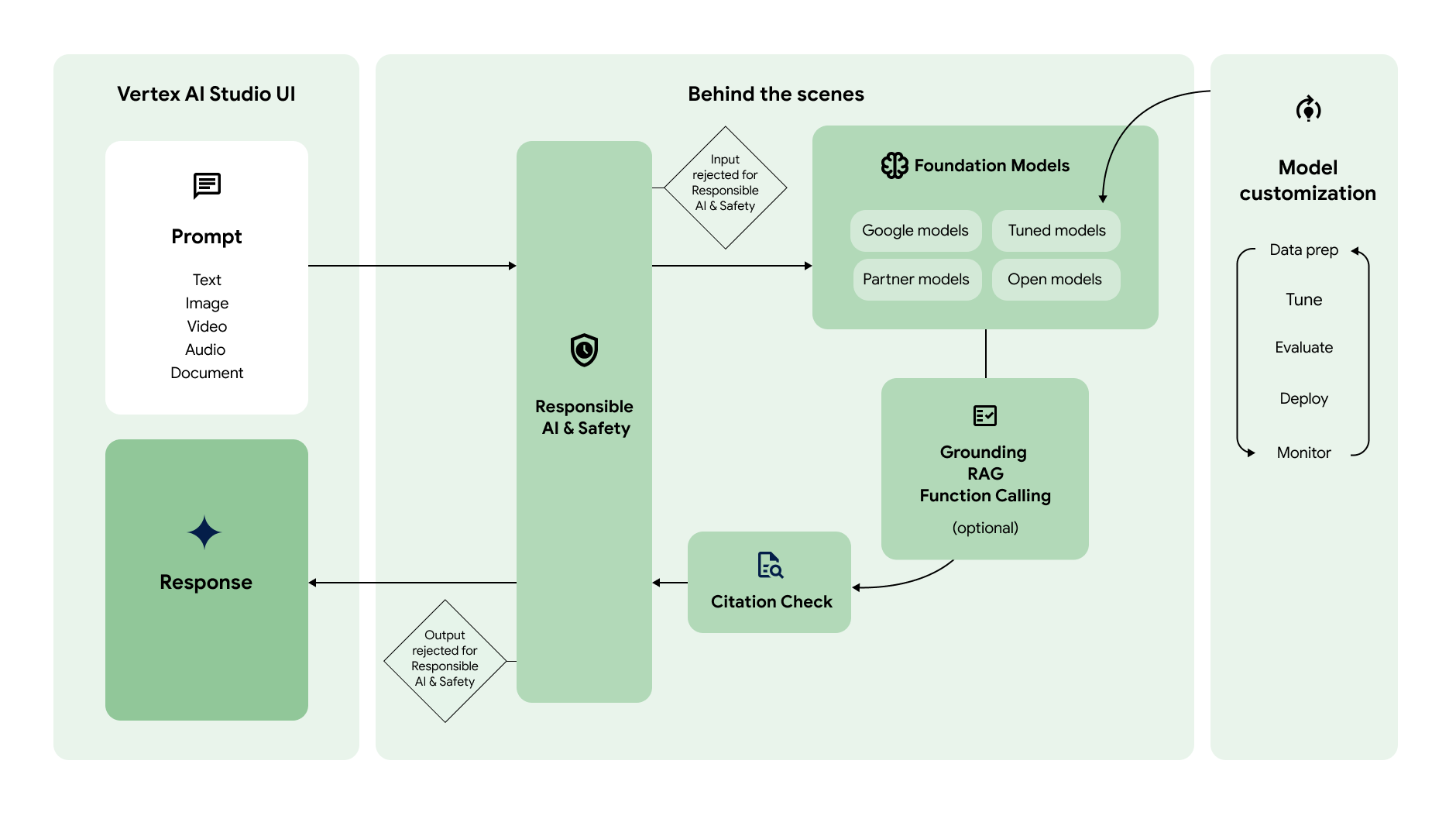Vertex AI documentation
Vertex AI is a machine learning (ML) platform that lets you train and deploy ML models and AI applications. Vertex AI combines data engineering, data science, and ML engineering workflows, which lets teams collaborate using a common toolset.
Gemini
Use Gemini, Google's multimodal generative AI model, to process images, videos, and text.
Generative AI
Access Google's generative AI models to test, tune, and deploy them for use in your AI-powered applications.
Model Garden
Use Model Garden to discover, test, customize, and deploy Google proprietary and select open source software generative AI models and large language models.
Documentation resources
Get started with generative AI
Get started with Vertex AI
Train your own models
Manage your workflow
Tutorials and samples
Resources
Latest videos
Vertex AI and Cloud machine learning (ML) products
| Solution type | Category | Products |
|---|---|---|
| Generative AI and pre-trained models | Generative AI | |
| Task-specific solutions | ||
| AI solutions | Finance | |
| Translation | ||
| Retail | ||
| Healthcare | ||
| Search and recommendations | ||
| Document management | ||
| Customer service | ||
| Conversations and speech | ||
| Vision and video | ||
| Model training and development | Automatic training | |
| Custom training | ||
| MLOps and production | Deployment | |
| Developer tools | ||
| Model iteration | ||
| Monitoring and evaluation | ||
| Data and features | ||
| Orchestration |



